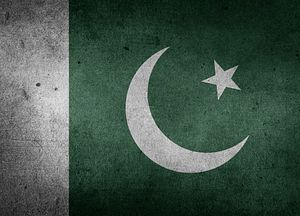Three members of a family in Pakistan’s Sahiwal city were killed in a Counter Terror Department (CTD) operation on Saturday, sparking outrage across the country. The family members, a married couple and their 13-year-old daughter, were among four people that were shot dead in their car while travelling from Lahore to Burewala. CTD officials alleged that the fourth man was a terrorist linked to the Islamic State (ISIS).
The mass uproar was caused by images of the family’s three surviving children being shared on social media. The backlash prompted Prime Minister Imran Khan to take notice, with a Joint Investigation Team (JIT) being formed to formally probe the CTD’s claims.
The law enforcement officials’ version of the incident has swung from dubbing all four killed in the encounter as terrorists, to calling it a foiled kidnapping attempt, to singling out the man behind the steering wheel as the target. And after much dillydallying, they seem to have settled on the last version.
The family of the man in question – Zeeshan, who was a family friend and neighbor of those killed in the firing – categorically deny terror charges against him. They staged a protest led by Zeeshan’s brother Ehtasham – who himself is a Punjab police official – not only rubbishing the CTD’s claims but also demanding that Punjab Law Minister Raja Basharat immediately resign.
Basharat’s statement on the incident seems to have given the most decisive clue as to where the probe might be headed.
While addressing a press conference on Sunday, the Punjab law minister claimed that family members killed in the CTD’s operation were “collateral damage.” This was followed by Punjab Governor Chaudhry Mohammed Sarwar reacting to the killing by saying that “such incidents are common all over the world.”
Therefore, it is likely that at best some junior officials might be charged and punished for the incident, but those at the helm would stay put. This is especially true given the fact that the CTD was accompanied by the Inter-Services Intelligence (ISI) in the joint encounter.
The incident comes at a time when the high-profile case of former senior superintendent of Karachi police Rao Anwar is still ongoing. Anwar, a known “encounter specialist,” last week presented an “ISI appreciation letter’” in court.
Anwar’s career and incidents like the Sahiwal killing underline the prevalence of fake encounters in Pakistan, which are offshoots of either the incompetence or complicity of law enforcement agencies.
While Basharat’s press conference on Sunday was an apt demonstration of this incompetence, and the accompanying repulsive insensitivity, he did get one thing right. The family was indeed “collateral damage,” just like the tens of thousands that have borne the brunt of the state’s counterterror failures.
When Rao Anwar killed Naqeebullah Mehsud in a fake encounter last year, it initiated the Pashtun Tahaffuz Movement (PTM), a nationalist drive that underlined this very “collateral damage” that resulted in the deaths and displacements of Pashtuns from the tribal areas and Khyber Pakhtunkhwa province. The PTM has been blacked out by the mainstream media functioning entirely at the behest of the all-powerful military establishment, which has over the years developed the narrative equating critique of the Army with treason against the state.
This is not to suggest that the civilian leadership has been any less complicit in creating the volatility that Pakistanis continue to fall prey to. Rao Anwar is an offshoot of the militarization of political parties in Karachi, while the entire institution of Punjab police was functioning as the de facto armed wing of the Pakistan Muslim League-Nawaz (PML-N) during their decade-long rule over the province, as epitomized by the Model Town killings in 2014.
While police reforms are critical for the state’s health, what is even more crucial is the creation of a narrative that values life in contrast to the current rush to affix meaningless “martyr” tags to innocent lives taken away owing to state failures.
Most important is accountability of the most powerful state institutions that in effect control the entirety of Pakistan, and yet suffer none of the consequences of its murderous shortcomings.
































